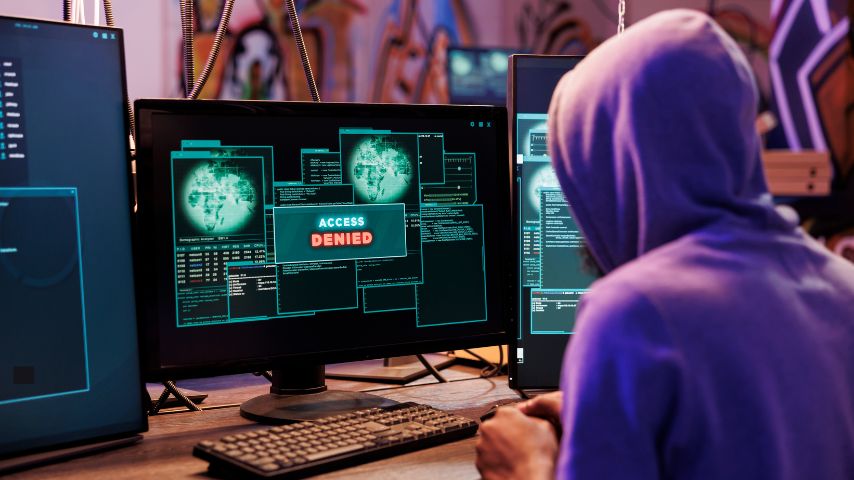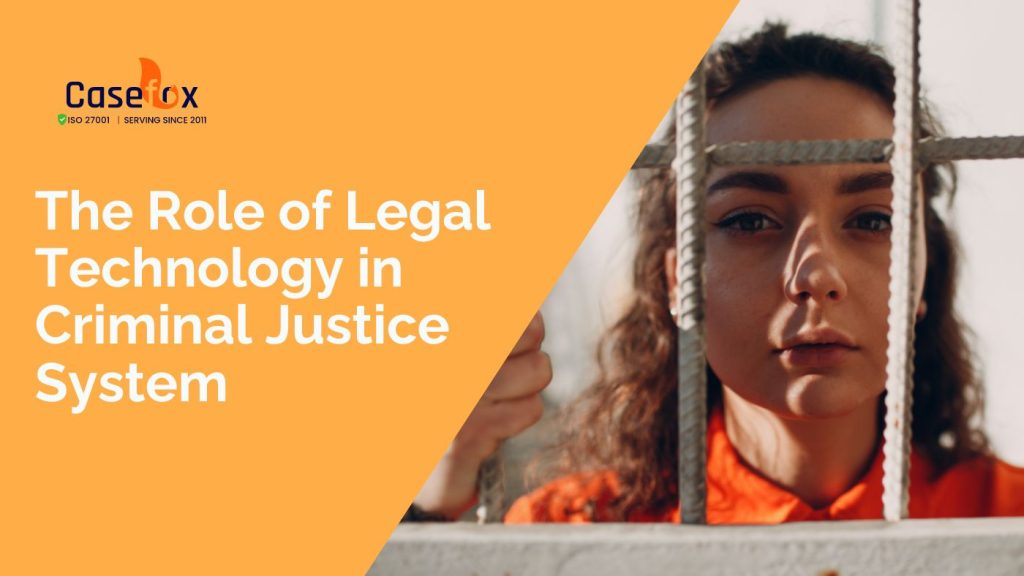The criminal justice system is the cornerstone of society. It plays a major role in maintaining law and order and ensuring the safety of each and every individual. But traditionally the criminal judicial system has been quite slow in adopting new technology.
But in recent years, there has been a visible moment in the adoption of technology in the criminal justice system. It has increased the efficiency and accuracy of criminal cases and has been beneficial for lawyers and clients. Technology and criminal justice are a perfect combination to improve the criminal justice system. This blog explores the crucial role of technology in the criminal justice system.
What is legal technology for the criminal justice system?

Criminal justice tech comprises various digital tools and software that are specially designed to streamline and improve criminal justice. These tools can improve the accuracy of criminal cases and take the judicial system online.
Some of the popular tech tools for criminal justice are case management, matter management, legal practice management, evidence management, legal research tools, document management, analytical tools, and more.
These tools can automate routine tasks, improve productivity, and enhance legal processes.
Benefits of technology in the criminal justice system
Here are some of the benefits of merging technology and the criminal justice system:
Streamlining Case Management
The technology in the criminal justice system can streamline the case management process. Traditionally, the case management process involves managing cases manually and recording time entries using a stopwatch, pen, and paper, and all these manual processes can cause human errors.
With legal case management software, it becomes easy to track time with automated timers available in the software. Lawyers can easily record all case details, documents, and client data in one place. They can keep track of case progress and manage court case dates on the go with a calendaring feature.
Enhancing Evidence Management and Analysis
The technology in criminal justice can revolutionize evidence management. With the use of evidence management tools, lawyers can store, retrieve, and organize evidence within minutes. Additionally, they can create backups of their data.
AI software can easily analyze the vast amount of evidence and data at once, which makes your task more efficient. All this enhances the accuracy and efficiency of the evidence management process.
Improving Legal Research
Legal research is a major part of criminal cases. Most of the modern crime technology platforms have legal research features that can make the process faster and more precise. These legal tools can quickly analyze a large database, find relevant information, and provide much-needed insights and information within minutes.
This capability helps attorneys in creating a stronger case with detailed research and saves time and resources that go into hours of manual research.
Enhancing Transparency and Accountability
It is important to maintain public trust in the judicial legal system, and being transparent is one of the best ways to do it. Most of the criminal justice degree programs teach lawyers and transparent professionals to be transparent with their clients being accountable for their legal research and other actions.
Having a digital case management system or legal practice management system can help in being more transparent. Clients can keep track of case progress, they can get detailed invoices, have a clear payment system, and record the time an attorney worked on their case.
All this helps in maintaining the integrity of the legal proceedings and provides a clear audit trail for transparency and accountability.
Revolutionizing Courtroom Procedures
Legal tech tools can bring revolution in courtroom proceedings in various ways. Virtual courtrooms, and secure video conferencing are some of the ways of doing so. Virtual courtrooms allow lawyers and clients to have remote hearings and trials. It reduces the need to travel and be available physically.
Legal tech tools like electronic evidence presentation systems and real-time transcription services can be used to improve virtual courtroom proceedings.

Challenges and ethical considerations of criminal justice technology
The new technology in criminal justice cases can be very beneficial but also comes with some challenges. Here are some of the challenges that you might encounter while using criminal justice tech.
Data Privacy and Security

Although most of the legal software providers offer software that is secure and encrypted, it is still necessary to take extra precautions. As a lawyer, you will be storing data that is sensitive and is of paramount importance. So having robust security measures in place is important as you will face challenges like data breaches and unauthorized access.
Ethical Use of Predictive Analytics
Sometimes using predictive analytics in criminal cases can raise ethical questions. It can be a threat to legal ethics. So it is important to use software or legal tech tools keeping in mind the guidelines and necessary ethical standards. All the established and governing ethics and regulations should be followed while using predictive analytics.
Algorithmic Bias
While using any AI or machine learning tool, it is possible to face algorithmic bias. In some situations, it can be inevitable. perpetuating biases present in historical data can be the reason for AI bias. So make sure the technology that you are using is fair and does not reinforce existing disparities.
Also oversight the data that some of the AI tools provide you while you are using AI and machine learning tools for criminal cases.
The Bottom Line
If you are a criminal justice lawyer, it might be difficult to shift to a legal technology or AI. However, as technology is overtaking the world, it is time to move on to criminal justice technology. In this blog, we have covered a few ways in which you can use legal software for your cases. But there are other ways too in which you can use these criminal justice systems.
Also, make sure that you are following all necessary ethical standards while using these tools.

